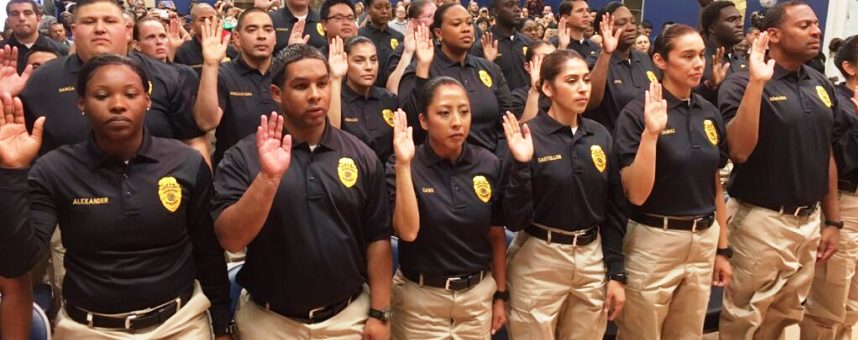Felony Probation in Georgia

New Georgia Probation Laws 2019
Learn about changes made in 2019 to Georgia laws for felony probation and how it may affect your life.
Georgia officials continually review and debate amending, repealing, and adding laws to the criminal justice system. Making changes to probation and parole laws are a major part of these legislative efforts.
A major force in improving probation laws is the Georgia Justice Project. Per their website, they define their role as “The Georgia Justice Project works with state legislature and advocates for laws to reduce barriers to re-entry for Georgians with a criminal history.”1
What is Felony Probation in Georgia
Per Wikipedia, “By law, a felony can be punished by not less than one nor more than five years of probation; a misdemeanor can be punished by not more than five years probation; and an infraction can be punished by not more than one year of probation.”2
Felony probation is the term for probation granted to anyone with a felony conviction. This allows the probationer to not be incarcerated, and instead live a relatively normal life. The freedom of a probationer does have certain limitations which, if violated, can cause the person to be returned to being incarcerated. Felony probation is typically granted to only persons who are convicted of non-violent crimes, and are not believed to pose a threat to society.
Felony Probation is not the same as regular probation. The most notable differences are the length of time and the terms of probation. Felony probation is closely supervised including home inspections, drug testing, etc. Felony probation asserts limitations on travel, and may limit an ability to live within a certain distance of schools or other facilities.
Federal Probation Laws are not affected by changes made to laws for persons on or seeking probation for State crimes.
The general intent of changes to probation laws is to respect the safety of the public, deliver justice in sentencing, and better enable rehabilitation of individuals with felony convictions. Georgia is a leader among states working to balance justice with reason. A 2017 PEW Stateline Article specifically addressed progressive changes enacted by Governor Nathan Deal. The article stated, “At the behest of Republican Gov. Nathan Deal, who has focused his efforts on revising the state’s criminal justice system, Georgia lawmakers passed a probation reform bill in March. The bill would, among other things, shorten probation sentences and reduce the caseloads of probation officers who are spread thin.”3.
The Judicial Council of Georgia has published a Bench Card for Judges for use in matters of Felony Probation for Georgia and U.S. Constitutional Law. This document provides an excellent summary of applicable probation laws.
Probation Law Changes in 2019
- GA HB470 A Georgia House BillL to be entitled an Act to amend Article 6A of Chapter 3 of Title 35 of the Official Code of Georgia Annotated, relating to DNA sampling, collection, and analysis, so as to provide for analysis and collection of DNA for individuals charged with a felony offense but sentenced as a first offender or under conditional discharge; to revise definitions; to change provisions relating to dissemination of information in the data bank; to change provisions relating to expungement of profiles in the data bank; to provide for related matters; to provide for an effective date; to repeal conflicting laws; and for other purposes.
Probation Law Changes in Recent Years
Probation Law Changes in 2018
- Restriction and Sealing Revision – Ga. Code Ann. § 35-3-37(j) & 42-8-66 Allows all special restriction petitions, such as Youthful Offender, to be filed in the court of original jurisdiction. Additionally, Retroactive First Offender will be filed in the court that resolved the charges and no fees can be charged. These revisions reduce the financial burden on applicants and simplify the process.
- Behavioral Incentive Dates Expansion – Ga. Code Ann. § 17-10-1 Expands eligibility for early termination of probation to include individuals who have split sentences (incarceration followed by probation). Also requires the court to consider an individual’s financial ability to repay restitution when considering early termination.
Probation Law Changes in 2017
- Program and Treatment Completion Certificates – Ga. Code Ann. § 42-3-2 The Department of Community Supervision may now issue Program and Treatment Completion Certificates to someonee on probation. This create a presumption of due care in hiring or leasing for a person possessing a Certificate. In 2014, Certificates were made available to inmates released from prison who completed specific programs (O.C.G.A. § 42-2-5.2). These Certificates are now available to anyone on probation.
- Behavioral Incentive Date for Probation Termination – Ga. Code Ann. § 17-10-1.19(a) Allows individuals convicted of their first felony offense to have their probation terminated after three years if all conditions are met.
- Retroactive First Offender Clarification – Ga. Code Ann. § 42-8-66 Clarifies that the 2015 retroactive first offender statute applies to all eligible cases closed after 1968.
Probation Law Changes in 2016
- Removal of Food Stamp Ban Ga. Code Ann. § 49-4-22 Removes the lifetime ban on eligibility for persons with felony drug convictions to receive food stamps.
- Sealing of First Offender Records Ga. Code Ann. § 42-8-62.1 Grants judges the authority to restrict first offender records at the time of sentencing instead of waiting until the sentence is complete and to seal court and jail records for successful first offenders, ensuring that Georgia’s First Offender Act provides a real second chance in the digital age.
- Occupational Licensing Reform Ga. Code Ann. § 43-1-19 Improves the way applicants are considered for state occupational licenses by applying Ban the Box principles. Licensing boards are required to consider a conviction’s relevance to the license sought, the time elapsed since the conviction, and the nature of the conviction.
- Retroactive Reinstatement of Driver’s Licenses Revoked for a Drug Offense Ga. Code. Ann. § 40-5-75(g) and § 40-5-9 Individuals convicted of non-vehicle related drug offenses prior to 2014, in addition to those convicted after 2014, no longer face automatic driver’s license suspension. Additionally, indigent individuals will qualify for waived or reduced reinstatement fees.
- Tax Incentive for Parolee Hiring – Ga.Code Ann. § 48-7-40.31 employers are incentivized to hire individuals on parole with a $2,500 tax credit.
Can You Get Off Probation Early in Georgia?
Under Georgia law, if a person has been sentenced to 3 or more years of incarceration, the Department of Community Supervision (DoCS) is required to submit a formal application for early termination. This submittal is sent to the sentencing judge within 60 days, prior to 3 years from your sentencing date.
Being granted early release from probation typically comes with stipulations and requirements. Qualifying for early probation release often requires paying outstanding fines, complete at least 50% of any probation, and complete any court mandated treatments, courses or classes.
What Happens When You Violate Felony Probation?
In any State, violating felony probation is a serious offense and huge mistake. If convicted you will almost certainly be returned to jail or prison. This could mean you will be required to complete the full prior sentence, and face additional time for the probation violation. If you are charged with violation of parole you need to immediately contact a probation violation defense lawyer.
Probation laws in Georgia are improving but to make the system work for you, it is imperative that you hire an experienced criminal justice attorney.
FOOTNOTES
- 1 GJP Staff, “Recent Changes in Georgia Law”, December 17, 2018, Available from Georgia Justice Project
- 2 Various Contributors, “United States federal probation and supervised release”, October 29, 2019, Available from Wikipedia
- 3 Teresa Wiltz, “Doing Less Time: Some States Cut Back on Probation”, April 26, 2017, Available from PEW Stateline Article


